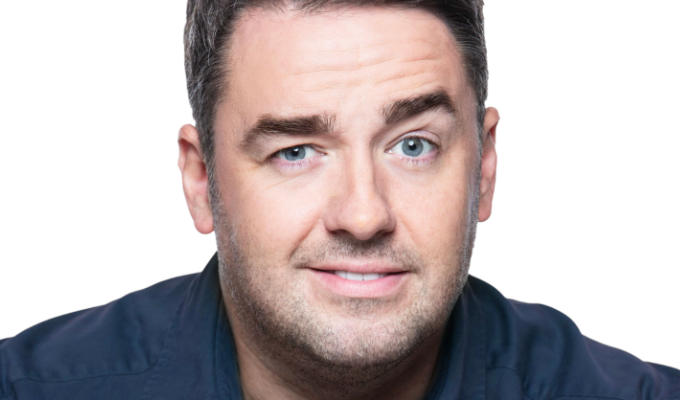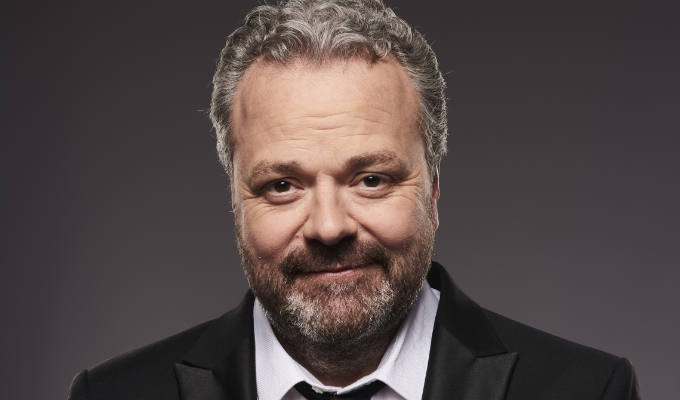Take comedy seriously
Michael Monkhouse says the art is underappreciated
Carla Lane once said: ‘I tell people I write comedy and they're disappointed… Last year I wrote two plays and everyone seemed impressed, like I was suddenly a writer.’What Carla Lane’s talking about is a fundamental snobbishness people sport towards the genre of comedy. Poets encapsulate the essence of existence, novelists tell a rattling good story, painters bare their souls on canvas… Comedians just tell jokes, don’t they?
But as Evan S. Smith points out in Writing Sitcoms: ‘People scoff at comedy. Yet many “experts” declare it’s the hardest thing to do. Explain that one.’
He’s right, of course. I've tried many forms of expression and stories were easy (nobody to look in the face), poems were easier (a few clever abstractions and people think you're Homer), reviewing was the easiest of all (don't know what to write? Then criticise how badly other people do it). But I tried stand-up and…
All right, the first time was average, but what more did I expect? The second time was cool, but the audience was primarily composed of my mates. And the third time had me running home in tears thinking maybe Jim Davidson wasn't so useless after all.
No doubt about it, comedy’s tough. Noel Coward remarked: ‘Comedians find it easy to be tragedians. The reverse isn't always true.’ Charlie Chaplin doesn’t tickle me, but his tear-jerking testament Limelight wrenches my guts out. And director Ingmar Bergman - who delved fearlessly into the innermost recesses of the pysche on film - admitted in his autobiography to hating his brother for his ability to make people laugh (in fact the first time he had to make a comedy film he hid in the foyer, desperate to hear that first titter. And when it came it was ‘a revelation’).
But people persist in snubbing comedians. Bob Monkhouse spent years perfecting his craft - only to be considered a slimy chatshow host. Jack Dee holds an audience in the palm of his hand for 90 minutes - and gets written off as a whinger. Galton and Simpson brought tears of laughter to generation after generation - and no one knows who the hell they are.
But everyone loves a laugh. Everyone needs a laugh. In a tale that's probably apocryphal, a suicidal guy phones his mate and decides to finish it once and for all. Mate’s reaction: ‘If you do that I’ll never speak to you again.’ Guy’s reaction: to giggle so much he decides to give life another chance.
It’s a stupid story, but a telling one. When life’s appalling, you don’t want intellectual postulation on the meaning of it all, you just need a smile, a jet of positivity, an injection of joy. Something we feel - and should appreciate - every time we enjoy quality comedy. Anything from the savage satire of Bill Hicks through the gentle whimsy of P. G. Wodehouse to the in-yer-face mania of Monty Python… Comedy’s here and it’s necessary and I love it.
Romanticism aside, the snobs have to recognise that comedy can be the most effective way to communicate ideas. Cartoonist Gerald Scarfe and novelist Sue Townsend both noted how nobody would listen to their right-on tirades till they used humour to raise a guffaw first, a musing second. J. D. Salinger’s Catcher in the Rye may be the most heartfelt account of adolescent trauma ever written, but it's also stacked full of chortles (re-read the episode with the well-meaning but repulsive history teacher). Even Sylvia Plath’s The Bell Jar a milestone in the exposure of female repression, benefits from the narrator’s bitter sense of humour - most notably where she’s trying to express her anguish to her obtuse boyfriend.
So maybe it’s time people stopped cocking a proverbial snoot at comedy and started to appreciate it a little more. It’s one of the hardest jobs, and one of the most essential, too.
Published: 18 Aug 2008






